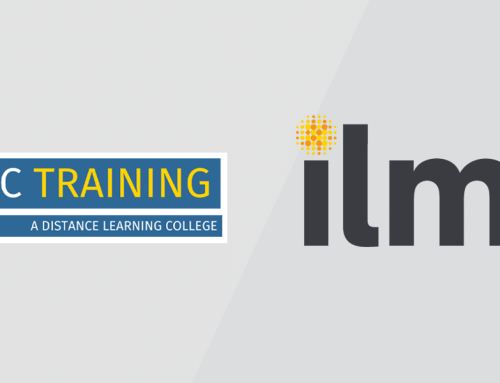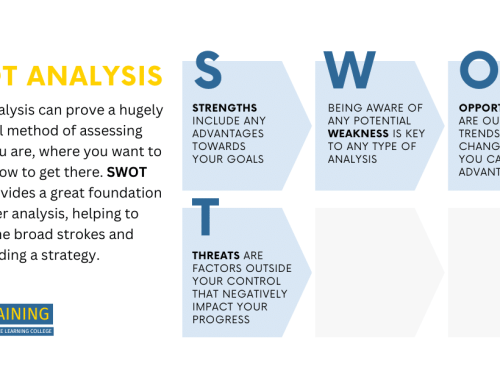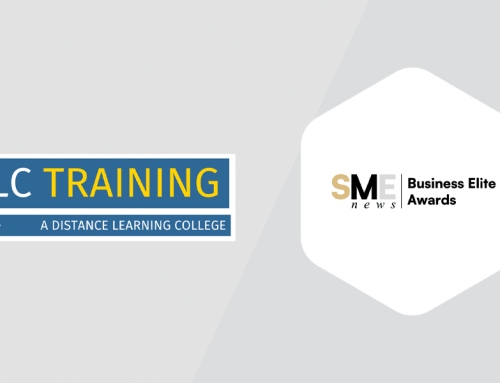You can study a course and ultimately gain a new qualification while working full-time. No matter your age, gender, lifestyle, family and work responsibilities, or anything else you think is getting in the way. The only thing that can hold you back is doubt, so it’s time to look at the reasons why studying while working is one of the best decisions you can make, and how you can go about taking the right steps to achieve your goals.

The Importance of Studying While Working
Studying while working is important not only for your career development but for your personal growth and development too. The main reasons to study while working full-time include:
- To become more employable by learning new skills
- To be more confident during work and outside of work
- To ensure you remain relevant in your sector by keeping up-to-date with the latest technologies and advancements
- To prepare yourself for a promotion
- To expand your understanding and gain new knowledge-based perspectives on the world around you
- To train your brain to handle new challenges
How Do I Study While Working Full-time?
Not all types of learning are suitable for people in full-time employment. It’s important to understand what study routes are going to be suitable, so you can narrow down your search when looking for the right course. There are two main options for you to consider:
- Full-time study
- Part-time study
When working full-time, you don’t have enough hours in the week to study full-time too. This is because you need to have time for other day-to-day activities such as eating, resting, exercising, socialising, and taking care of family. Depriving yourself of any of those activities would be detrimental to your health, it’s therefore better to consider studying part-time so you are able to incorporate this into your daily life with ease.
Now that we’ve established part-time study as the most suitable route for full-time employees, the next step it to consider how the studying will take place. Do you need to travel to a classroom, or can you study the course remotely? Do you need to study and complete work at certain times, or can you work through your course at your own pace?
When working full-time and studying part-time, the most efficient way to study would be online and at a flexible pace. This is because you won’t need to take time out of your day traveling to a classroom, and you can study and complete assignments as and when it’s suitable for you rather than needing to do work at specific times. There are online distance learning courses for many different topics, and these courses can be fully accredited and Ofqual regulated when certified via an awarding body. For example, the Chartered Institute of Management (CMI) certifies its own management courses and the Chartered Institute of Procurement and Supply (CIPS) certifies its own procurement courses. You can find our full range of accredited, online distance learning courses here.
When Should I Study?
The best thing about online distance learning is that you can study anytime it’s suitable for you. It’s a good idea to consider the times of day you are feeling most productive. For example, if you work 9am-5pm, what times outside of this period of the day do you usually get things done? If you’re an early riser, you may find studying for a couple of hours before you start your working day works really well, or if you’re more productive in the evenings, setting aside 7pm-9pm to study could work best. If you don’t have much time during the week, think about the hours you could set aside on a weekend. A couple of hours every other day may not sound like much but it soon adds up toward achieving your qualification.
Finding the Motivation to Study
It can be easy to lose motivation to study when you have a lot on your plate already. There are several steps you can take that will provide you with the motivation you need to succeed:
Take small steps
Instead of trying to fit in a lot of hours every day, try to study a little bit as often as you can, an hour every day or every two days for example. One hour of studying is much less of a commitment than five hours, so you are more likely to do it. This will also help you to develop a habit of making sure you have a spare hour to study.
Take quick breaks
Knowing you have to be in deep concentration for your entire study period can off-putting, especially with the average attention span for adults lasting only 15 to 20 minutes. No matter how long you decide to study for, make sure you plan your break times as this will make the study process seem much more manageable.
Become interested
There has been a lot of research around interest and how this contributes to being more motivated. A study has suggested that if you are interested in a specific topic, your attention and effort increases. Being interested in what you’re learning about, therefore, will help keep you motivated to study. If you’re studying a topic that you don’t find all that interesting, try to start off with the parts you do want to learn more about to build your momentum. You can also try applying the topic to your job role to understand how you’ll use what you are learning in your role.
Eliminate distractions
Having too many distractions can decrease your motivation to study. For example, if you sit down to begin your studies and have your phone and tablet on your desk, you are much more likely to pick them up and use them than if you had to get up and walk somewhere to get them. Keeping your study space as clear as possible and having in reach only what you need will help to keep you motivated.
Reward yourself
Whether your study session is half an hour, two hours or a full day, reward yourself when you are finished. Reward yourself with something you personally enjoy, whether that be a nice meal out; a night watching TV; or even sleeping in the next morning. Some courses can take a while to complete which can cause us to lose sight of our goals and reduce our motivation. Having small rewards throughout your learning journey will help to keep your motivation high for the duration of your course.
Remind yourself why you’re studying
A simple way to keep motivated is to remind yourself why you started studying in the first place. What made you decide to take on a course, was it to develop your skills in a job you have recently started? Was it to prepare for a promotion? Spend a good few minutes going over the reasons to bring them back into the forefront of your mind.
Speak with your support team
When you enroll in a course, you’ll have a support advisor and a tutor who will be on hand to speak with you about your studies. An encouraging word from someone who really wants you to succeed is a great way to stay on track.
Here at DLC Training, we understand that your studies can’t always be your priority. To ensure you complete your course successfully, our support team is on hand to provide you with help and guidance. Whether you’re looking to kick-start your career and self-fund your course, or your employer is funding the course for you, you can be sure you’ll receive the support you need to succeed.




